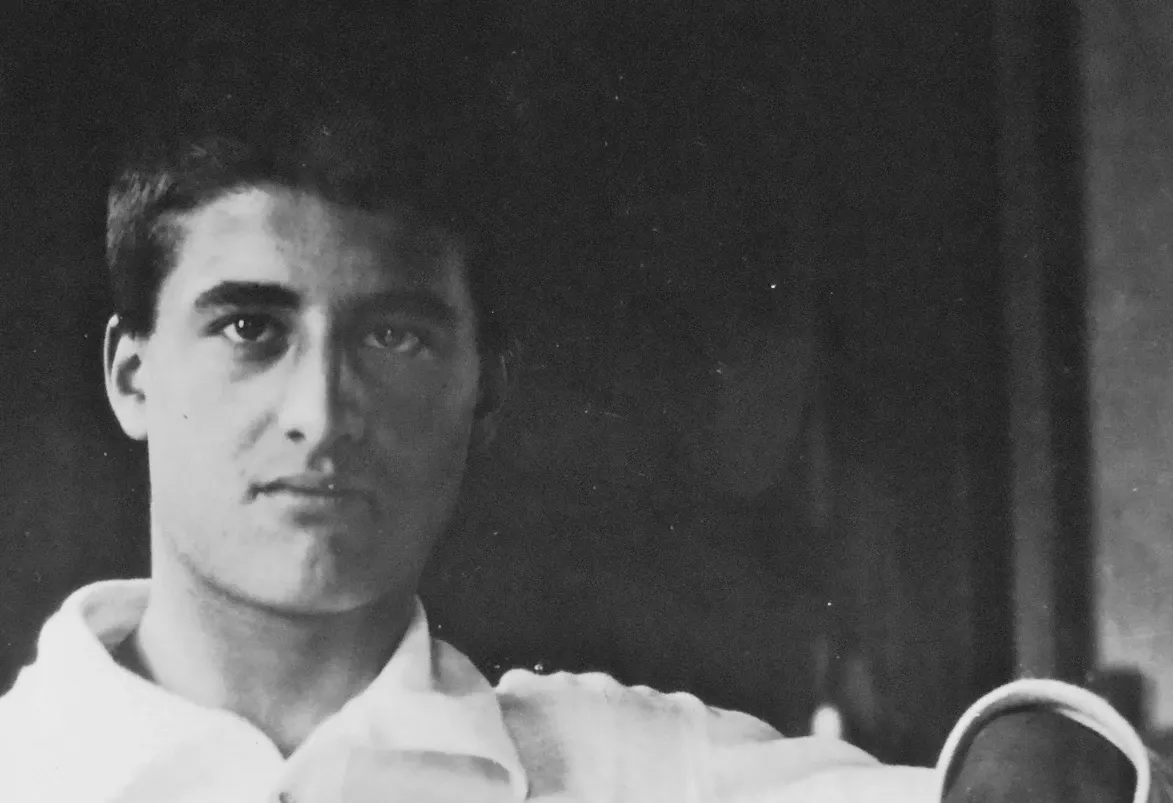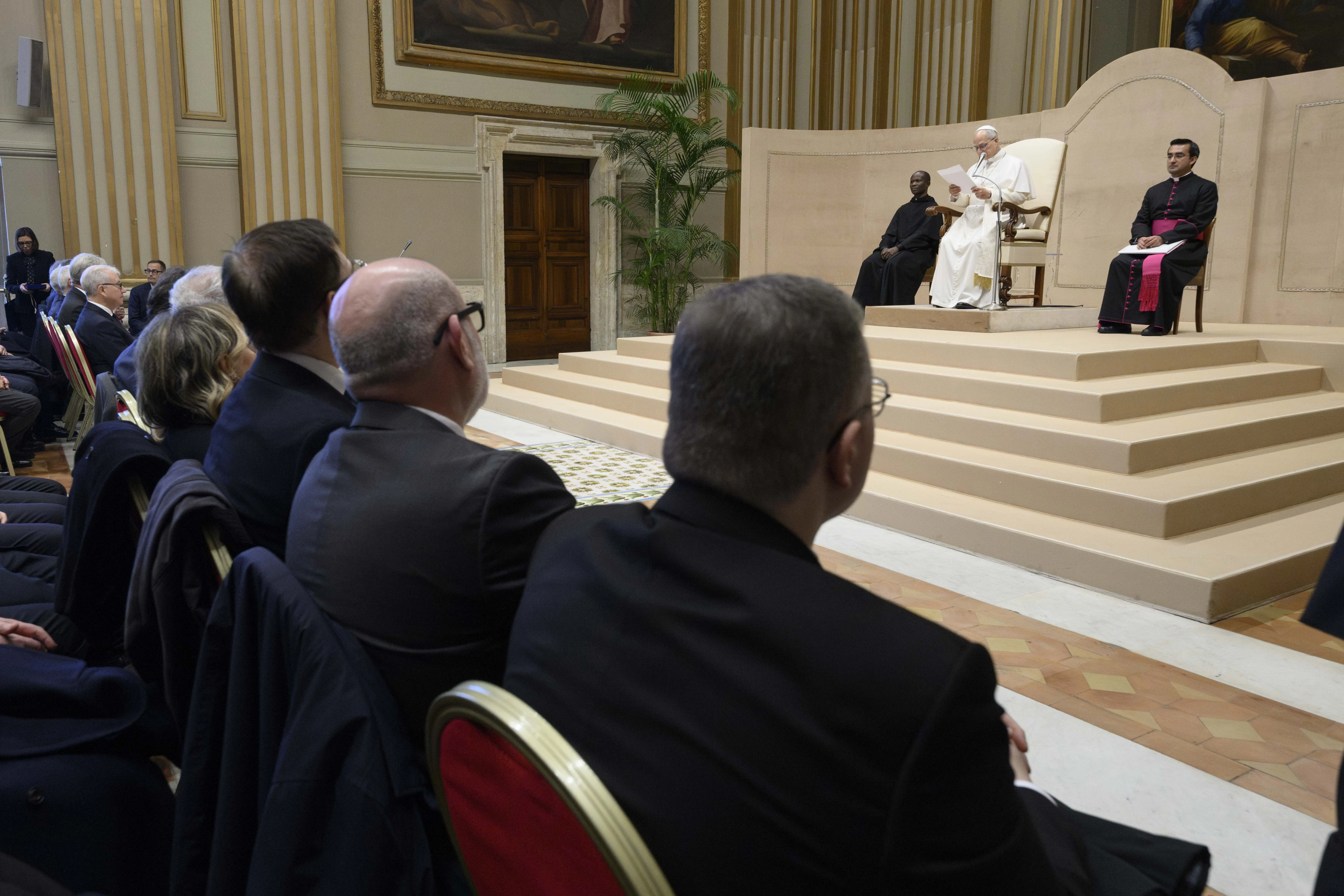At the age of 17, he joined the St. Vincent de Paul Society and dedicated much of his spare time to taking care of the poor, the homeless, and the sick, as well as demobilized servicemen returning from World War I.
Frassati was also involved in the Apostleship of Prayer and Catholic Action. He obtained permission to receive daily Communion.
On a photograph of what would be his last climb, Frassati wrote the phrase, “Verso L’Alto,” which means “to the heights.” This phrase has become a motto for Catholics inspired by Frassati to strive for the summit of eternal life with Christ.
Frassati died of polio on July 4, 1925. His doctors later speculated that the young man had caught polio while serving the sick.
John Paul II, who beatified Frassati in 1990, called him a “man of the eight beatitudes,” describing him as “entirely immersed in the mystery of God and totally dedicated to the constant service of his neighbor.”
(Story continues below)
Pope Francis praised Frassati for sharing the love of Jesus with the poor in a speech on June 24.
“I am reminded of Blessed Pier Giorgio Frassati — soon to be a saint — who in Turin used to go into the homes of the poor to bring help,” the pope said.
“Pier Giorgio was from a wealthy, upper-middle class family, but he did not grow up ‘wrapped in cotton wool,’ he did not lose himself in the ‘good life,’ because within him there was the lifeblood of the Holy Spirit, there was love for Jesus and for his brothers,” he added.
Other soon-to-be saints announced
In addition to Frassati, Pope Francis also recognized a miracle attributed to Blessed Maria Troncatti (1883-1969), an Italian religious sister from the Congregation of the Daughters of Mary Help of Christians who served as a missionary among indigenous peoples in Ecuador.
The pope also approved the martyrdoms of Vietnamese Servant of God Francis Xavier Tru'o'ng Bǚu Diệp (1897-1946) and Congolese Servant of God Floribert Bwana Chui Bin Kositi (1981-2007), making possible their beatifications.
Father Francis Xavier was a Vietnamese priest who defended the rights of local citizens against plunder by armed gangs at the end of the Second World War. On March 12, 1946, he was taken prisoner by a group of militiamen together with others and locked up in a rice warehouse, where he was interrogated.
A few days later, his disfigured body was found in a ditch. Following his death, Christians began to visit his tomb, asking for his intercession and obtaining graces, according to the Vatican.
Floribert Bwana Chui Bin Kositi was a Congolese layman, lawyer, and member of the Saint Egidio Community. He worked as a commissioner for a customs office controlling food supplies entering the country, a role in which he opposed several attempted acts of corruption. For this, he was kidnapped, tortured, and killed in July 2007. The Vatican recognized his martyrdom in “odium fidei” because his killing was motivated by the fact that “he was a man of faith, animated by a strong sense of justice and a concrete love for his neighbor.”
In the decree, Pope Francis authorized the beatification of Venerable Juana de la Cruz (1481-1534), the abbess of the Convent of “Santa Maria della Croce” in Cubas de Madrid, without the usually required miracle due to the recognition of the longstanding “cult,” or devotion that has spread and continued for centuries.
The pope also recognized the heroic virtue of Croatian Bishop Josip Lang (1857-1924) who was known for his service to the poor and formation of seminarians.
Courtney Mares is a Rome Correspondent for Catholic News Agency. A graduate of Harvard University, she has reported from news bureaus on three continents and was awarded the Gardner Fellowship for her work with North Korean refugees.








